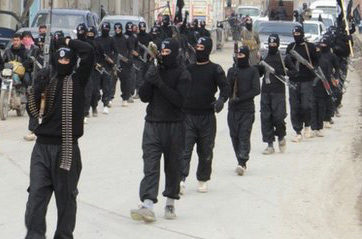
How COVID-19 has Emboldened the Islamic State Part 2: Ideology and Propaganda
As COVID-19 pushes more people inside, U.N. Secretary-General Antonio Guterres continues to speak on the effects caused by pandemic, warning that extremist groups are taking advantage of the lockdowns to spread hateful propaganda and recruit vulnerable individuals online. Global crises, like the current pandemic, prompt a fear within populations concerning one’s mortality and future economic stability. This fear can derail into desperation to find a reason as to why something so world-changing could occur. This fear and desperation will be exacerbated for those who live in states that are failing to address the spread of coronavirus effectively (i.e. developing countries). Extremist groups like ISIS are looking to fill that void by publishing propaganda that adapts their ideology to address the concerns surrounding the virus.
Establishing Coronavirus as “Divine Intervention” against Enemies of ISIS
The Islamic State has been publishing about the coronavirus since the early days of its outbreak in February. ISIS is a learning organization and adapts its ideology to constantly changing landscapes. Col. Chris Costa, a retired Army intelligence officer whose career focused on jihadist adversaries, told ABC News:
“They are opportunistic and taking advantage of a pandemic by suggesting this is divine retribution. If they can’t beat us on the battlefield they can beat us through God’s vengeance, they believe.”
In the initial writings concerning the virus, ISIS had argued that the onset of the pandemic was an aggressive act by God aimed at disbelievers. In a February edition of the ISIS newsletter, al-Naba, ISIS said:
“many Muslims rushed to confirm that this epidemic is a punishment from God Almighty” for China’s oppression of the Muslim Uighur minority.
As the virus spread outside of China, ISIS worked to then address its own operations and the safety of its force. In an early March newsletter, ISIS released a graphic of public health practices its members should follow. However, this graphic was also presented as an opportunity to reinforce an extremist interpretation. The newsletter told its followers to “put trust in God and seek refuge in Him from illnesses” and utilized Koranic verses involving lions and leprosy to create an analogy with the current pandemic. Building upon that, ISIS told its members to avoid the “land of the epidemic” (Europe) as it was succumbing to infection. Combining both statements, ISIS is trying to achieve a narrative that demonstrates that God will protect his followers within ISIS, but that his enemies are facing his wrath.
Although these initial narratives did not yet call for acts of violence by ISIS members and recruitments, it quickly established a powerful ideological narrative that poses a threat to Western governments. This narrative has taken hold of ISIS followers. An ISIS supporter referred to the disease as “a soldier of Allah” in an online chatroom, reaffirming the spread of the narrative occurring online.
Using Ideology to Prompt Aggressive Acts
As COVID-19 continued to destabilize countries’ infrastructures, ISIS began to shift its narrative in mid-March– calling its followers to action. In a later edition of al-Naba, ISIS noted how the pandemic has forced the “Crusader” nations to be preoccupied with their domestic handling of the virus. Therefore, the chaos and disorder caused by coronavirus have left these states vulnerable to attacks. In a translated version of the newsletter, it states:
“The last thing they want is for their current tribulations with the pandemic to coincide with the attacks in their own countries like the attacks in Paris, London, and Brussels, or for the ‘mujahideen’ to conquer parts of the Earth as occurred in the past.”
They further embolden their followers to:
“not pity the disbelievers and apostates, but should use the current opportunities to continue working to free Muslim prisoners from the camps in which they face subjugation and disease, and should intensify the pressure on them however they can.”
As previously mentioned in Part 1, Syrian prisons and camps where ISIS fighters and supporters are currently held are a particularly notable concern. With ISIS clearly demonstrating its interest in those locations, the threat of re-adding thousands to ISIS forces should be at the forefront of the United States’ concerns.
Staying Vigilante
Despite governments reducing their anti-ISIS operations, there is no indication that ISIS will do the same. With ISIS still posing a threat to US interests abroad, it is important the US remain vigilante in intelligence gathering concerning the group’s next moves. Although ISIS is not immune to the virus, its online presence allows it to continue encouraging its members to take advantage of struggling countries. Therefore, the US should continue to monitor online chatter for indications of attacks, and work with partners to strengthen counter-narratives and properly educate vulnerable populations about the disease.





